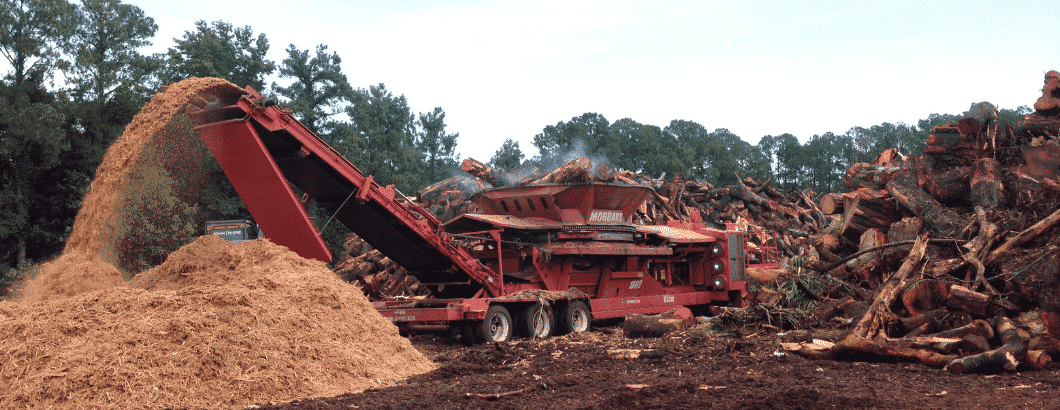
How Is Mulch Made?
Mulch is often made of organic material and has many benefits for your landscaping and gardens. Organic mulch reduces soil moisture evaporation, suppresses weeds and prevents weed germination, insulates soil from extreme temperature changes, reduces soil erosion and compaction, gradually decomposes adding valuable organic material to the soil, and makes landscaping more attractive.
What Is Mulch?
Mulch is primarily made of organic material and can come in a variety of forms. Mulch is most commonly made of tree bark, wood chips, pine straw, moss, grass clippings, or leaves. Other substances like newspaper, manure, compost, or rubber are also popular.
At Gaston, our mulch is primarily made of tree bark or wood chips. We use recycled tree debris that would otherwise end up in a landfill or a burn pile.
How Are Different Types of Mulch Made?
When you’re deciding on what landscaping material works best for your situation, take time to consider where each material comes from. We’ve outlined some of the more common mulch options you will encounter and how they’re made.
- Leaf Mulch – Leaf mulch is some of the easiest organic material to collect and use in your gardens. By raking up leaves and then using a mower to chop them up, leaves can be turned into mulch for your gardens and landscaping.
- Bark Mulch – Bark mulch is created by scraping bark off fallen or cut trees. Bark mulch typically comes from pine trees and is an attractive option for your landscaping.
- Wood Chips – When tree debris is recycled, that wood can be put through a chipper to create an organic mulch. At Gaston, we offer both cypress and pine wood chips. We can also dye the chips a variety of color to add an extra dimension to your landscaping.
- Compost – Composting is the process of allowing organic material to break down over time and then use that nutrient-rich by-product in your garden beds.
- Rubber Mulch – Rubber mulch most commonly comes from recycled rubber products like old tires. That used rubber is shredded to be used for landscaping projects like playgrounds. The downside of using rubber mulch is that it is not organic and offers no nutrients for your soil.
Some of the options listed above offer better aesthetics than others. Compost and leaf mulch will add plenty of nutrients to your soil, but they may not be the most attractive landscaping option. Also an important note: certain leaves (like walnut and eucalyptus) may actually prevent other plants from growing!
Where Does Gaston Get Its Mulch?
At Gaston Mulch and Soil, our wood mulch is recycled by Gaston’s Tree Debris Recycling. At Gaston’s, they collect, process, and grind hundreds of thousands of tons of debris a year. They collect and grind debris from storms and natural disasters, from land clearing operations, and from residential neighborhoods where trees are trimmed or cut down.
By recycling that debris and transforming it into a landscaping product, we feel that it is getting a second chance to add nutrients back into the soil rather than be burned or end up in a landfill.
If you’re considering buying mulch for your next landscaping product, we offer recycled, natural wood mulches in bulk amounts. Order online or give us a call to get started.
